 |
…certain emotionally charged events are universal, capable of capturing the attention of all of us.
|
113 |
 |
If you want people to be able to pay attention, don’t start with details. Start with the key ideas and, in a hierarchical fashion, form the details around these larger notions. Meaning before details.
|
115 |
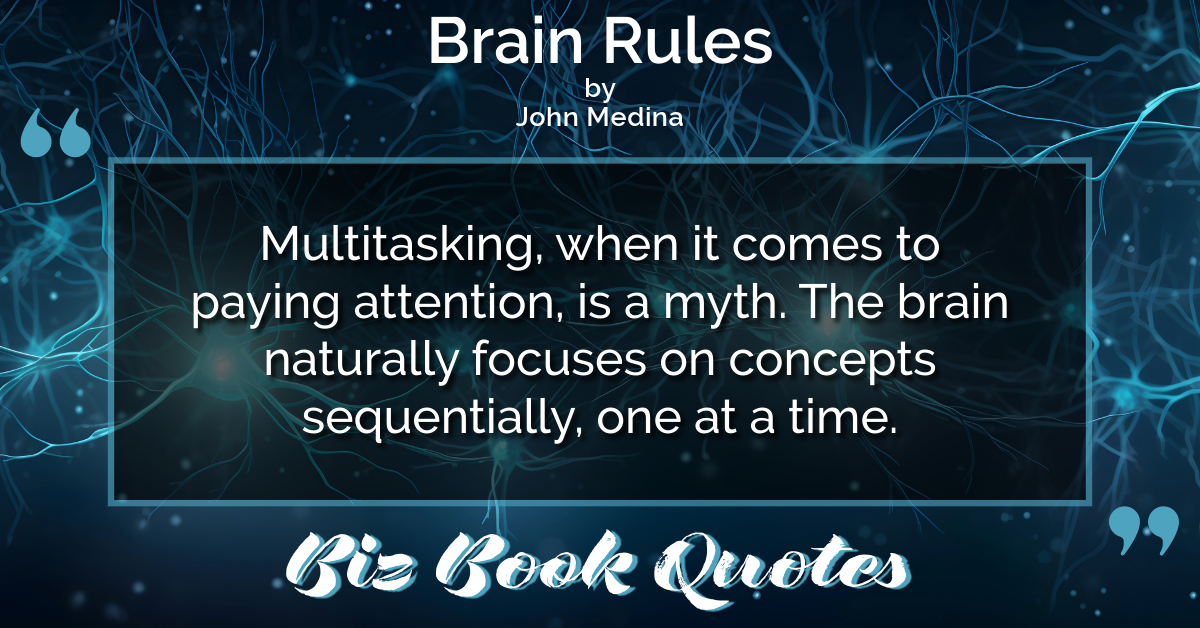 |
Multitasking, when it comes to paying attention, is a myth. The brain naturally focuses on concepts sequentially, one at a time.
|
115 |
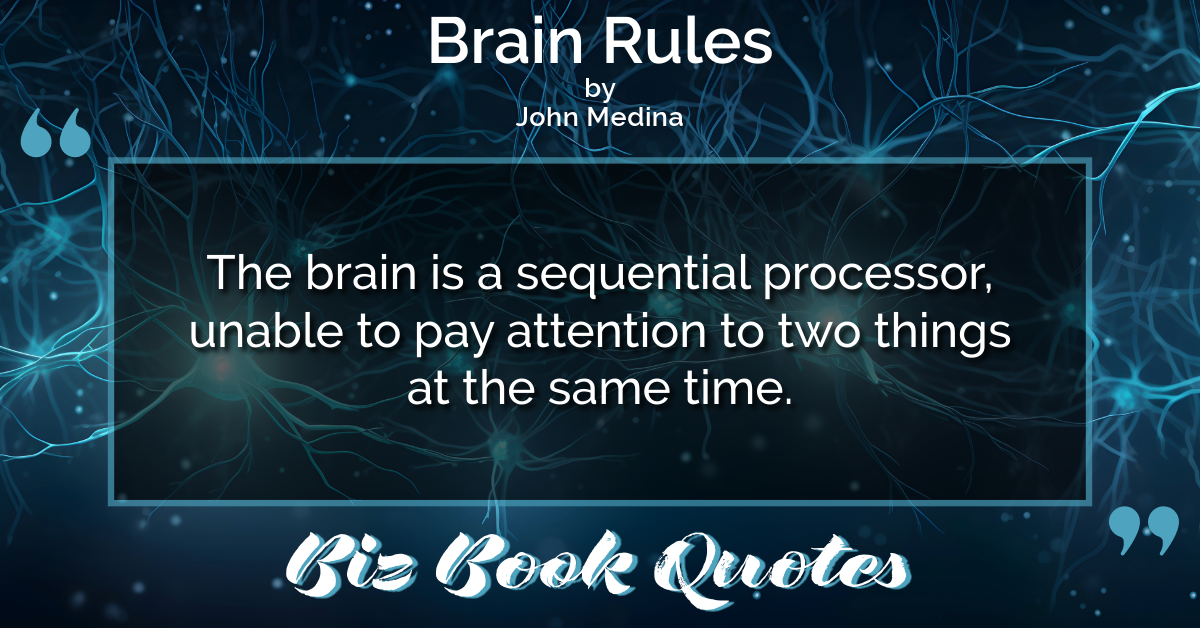 |
The brain is a sequential processor, unable to pay attention to two things at the same time.
|
120 |
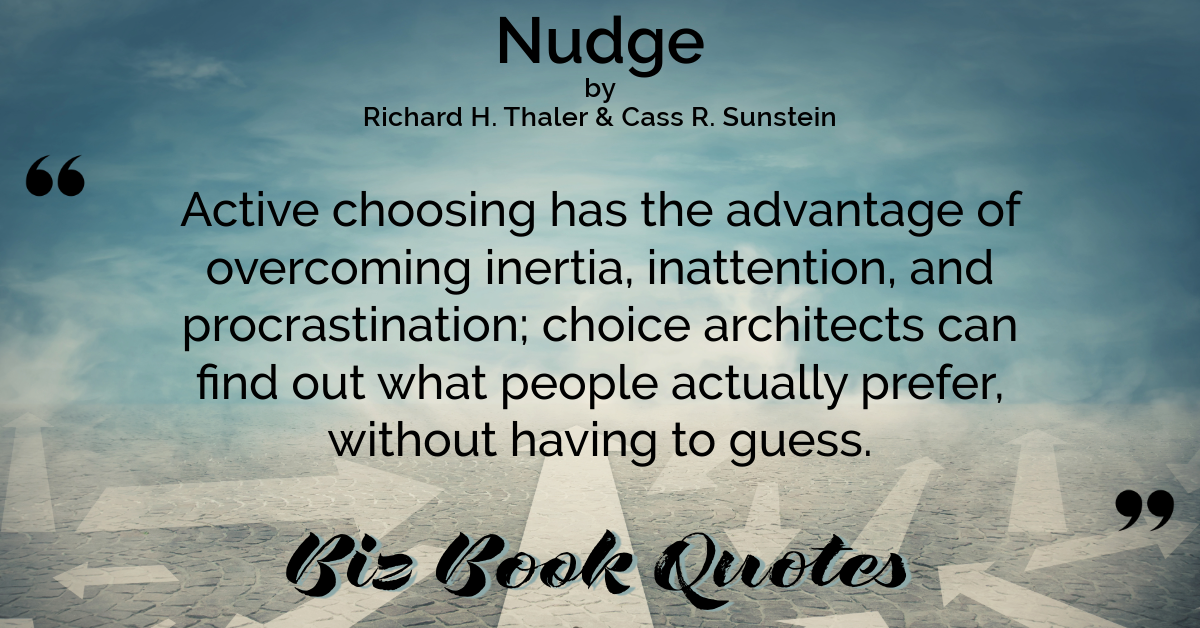 |
Active choosing has the advantage of overcoming inertia, inattention, and procrastination; choice architects can find out what people actually prefer, without having to guess.
|
111 |
 |
…surprising results and counterintuitive effects make good stories and these are exactly the stories that get more attention than they deserve and are prone to exaggerations.
|
036 |
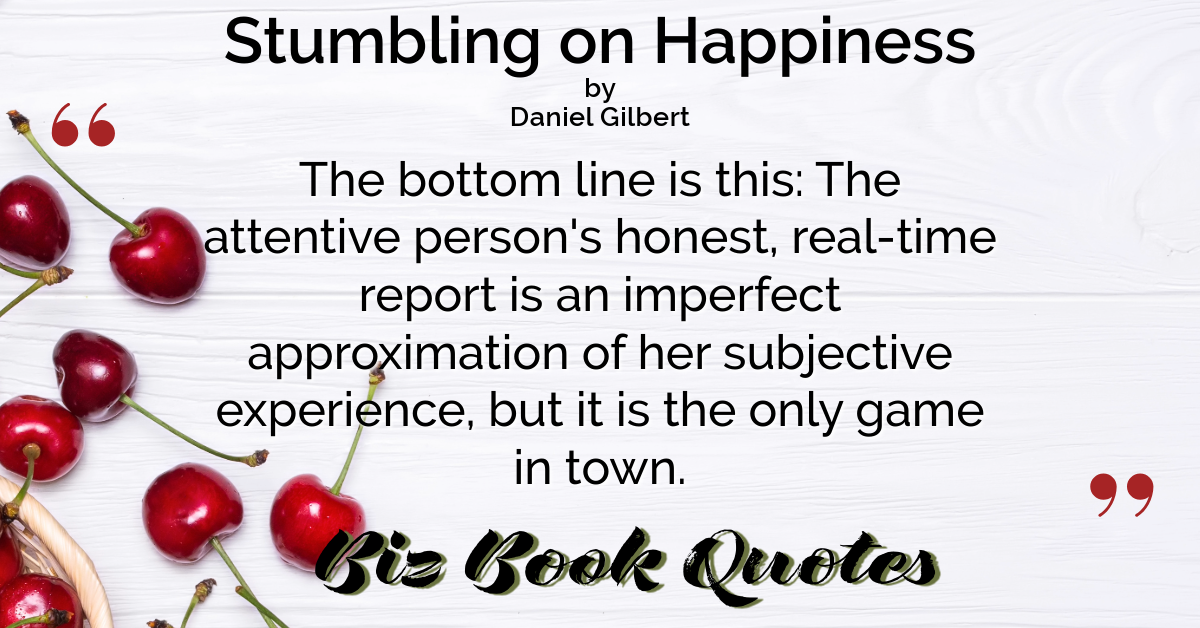 |
The bottom line is this: The attentive person’s honest, real-time report is an imperfect approximation of her subjective experience, but it is the only game in town.
|
070 |
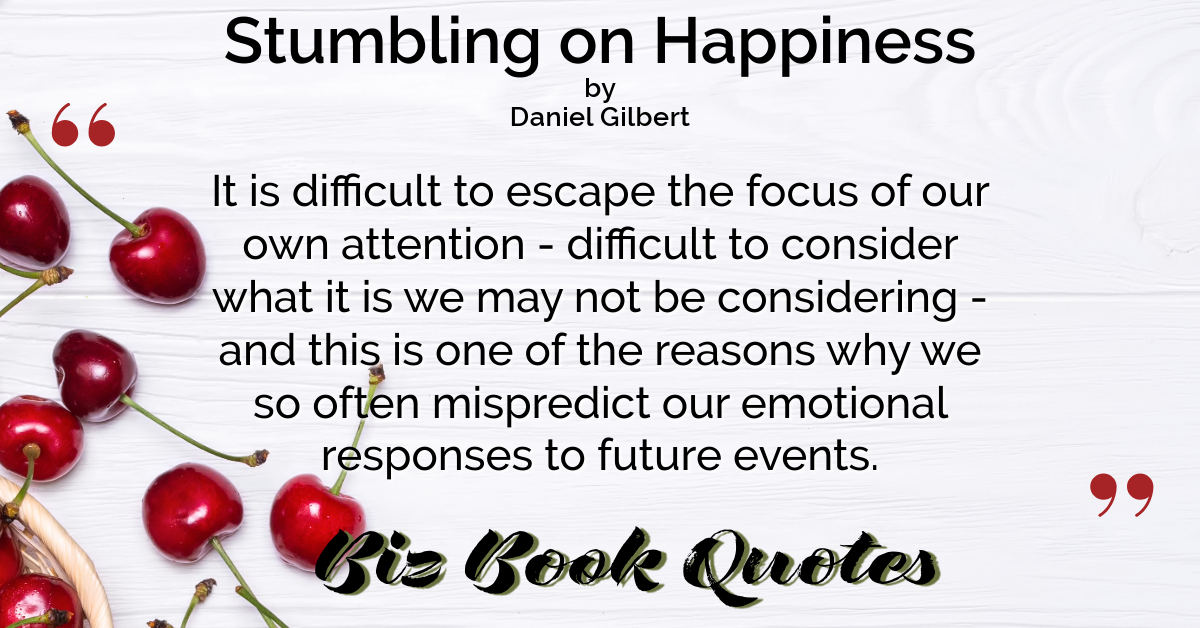 |
It is difficult to escape the focus of our own attention – difficult to consider what it is we may not be considering – and this is one of the reasons why we so often mispredict our emotional responses to future events.
|
103 |
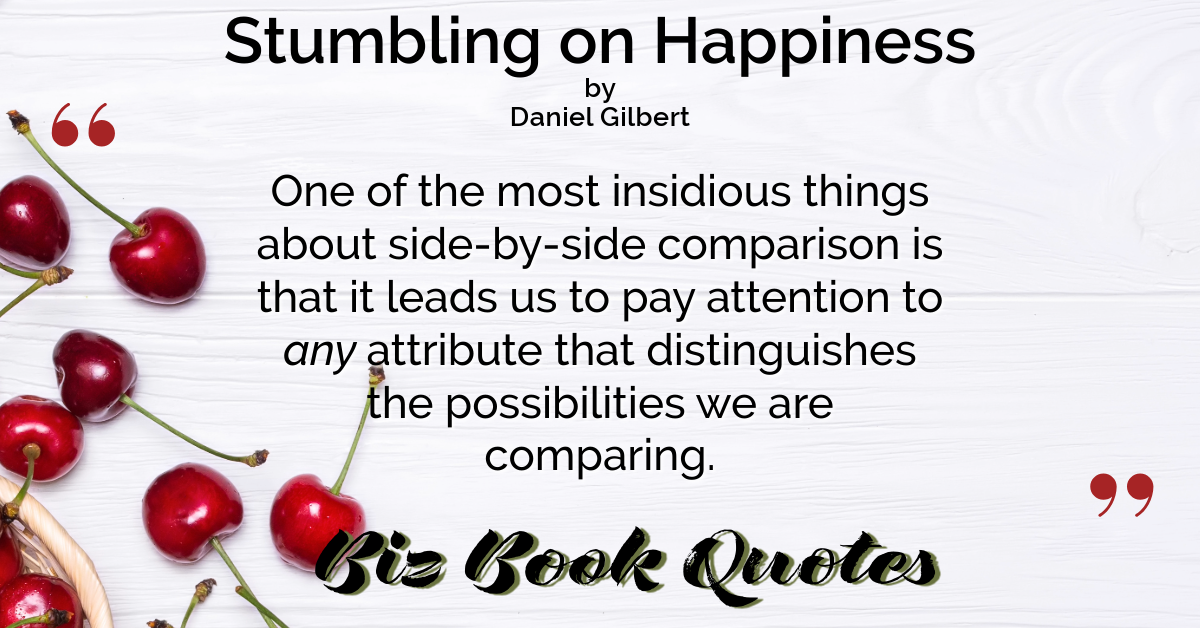 |
One of the most insidious things about side-by-side comparison is that it leads us to pay attention to any attribute that distinguishes the possibilities we are comparing.
|
142 |
 |
Paying rapt attention… increases your capacity for concentration, expands your inner boundaries, and lifts your spirits, but more important, it simply makes you feel that life is worth living.
|
010 |